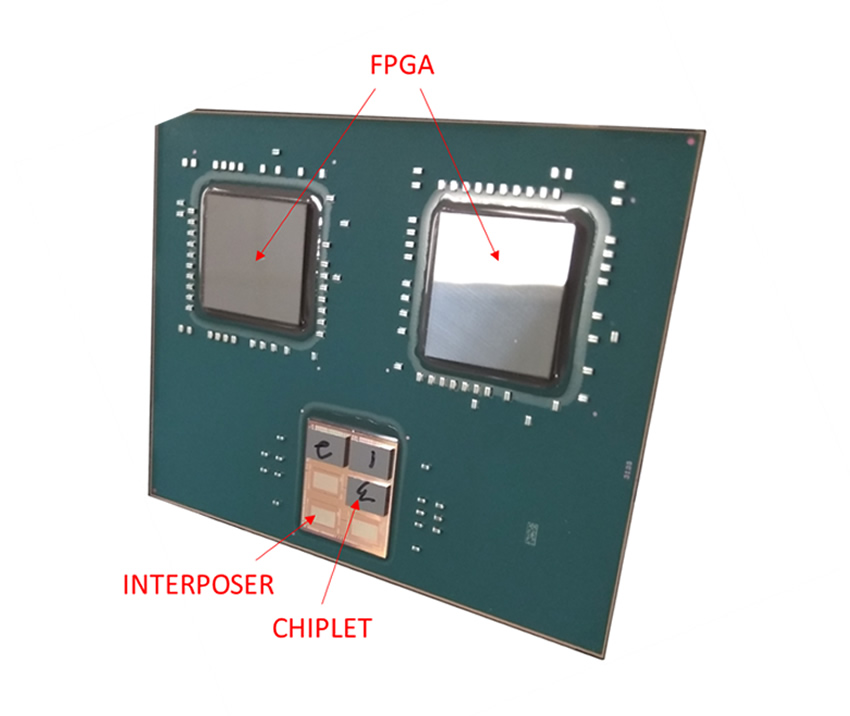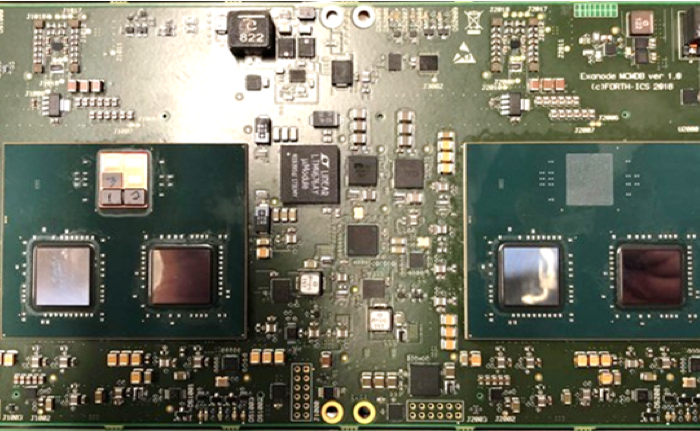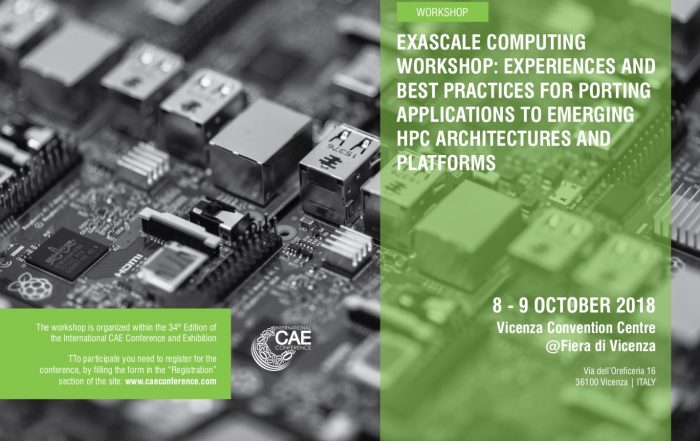European Exascale Processor & Memory Node Design
Why do we need ever faster computing?
High performance computing (HPC) is an important tool for science, industry and decision making. Today’s fastest computers are already incredibly powerful, yet many scientific and industrial challenges demand still more computing power, for instance climate research, drug discovery and material design. Learn why we need ever faster (“Exascale”) computing, what are the difficulties faced by designing such large computers, and how ExaNoDe contributes to this design.
ExaNoDe has developed an integrated prototype deploying technology building blocks designed to contribute to the EU drive towards exascale computing. It employs a low-power architecture and advanced nanotechnologies to realise high-performance, high-density computing.
The heterogeneous Multi-Chip-Module (MCM) builds on the following key components:
- ARM-v8 computing architecture;
- 3-D integration (interposer) of System-on-Chips (SoC) for higher compute density combined with high-bandwidth, low-latency data communication interfaces;
- UNIMEM-based advanced memory schemes for high scalability
More information can be found int the general and technical press releases.

Picture above: Single ExaNoDe Multi-chip module (MCM) with FPGAs, interposer and chiplet



















